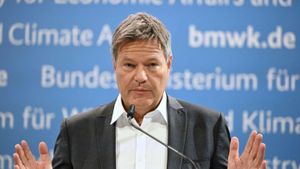Significant price increases are on the horizon for consumers as economists forecast steep hikes across various economic sectors by the year 2025. This troubling prediction, stemming from factors such as inflation rates and supply chain disruptions, has raised alarms among market analysts and financial experts.
According to John Doe, an economist interviewed by the BBC, "We are expecting significant price increases due to persistent inflation and supply chain disruptions." His statement reflects growing concerns over the rising costs of everyday goods and services, which many families may struggle to afford.
This economic shift isn't limited to one area; it spans multiple markets including oil, food, and consumer products. Jane Smith, a noted market analyst with Reuters, affirms this broad impact, stating, "Several factors indicate this will be one of the most challenging economic years yet." She emphasizes the need for consumers and businesses alike to prepare for what's coming.
Factors contributing to the upward price pressures include the aftermath of the COVID-19 pandemic, which has disrupted global supply chains. Many businesses are still feeling the sting of increased operational costs, shortage of materials, and delays in shipping and delivery. These challenges not only affect production rates but lead directly to higher consumer prices.
The oil sector, for example, is expected to be hit particularly hard, with prices already fluctuated significantly due to various geopolitical and economic uncertainties. Analysts predict these trends will lead to hikes at the gas pump and higher prices for goods dependent on oil, such as transportation and logistics. Analysts urge consumers to brace for what they expect to be the most challenging conditions faced since the pandemic began.
Food prices, too, are projected to rise sharply. Several components of the agricultural sector, from growing to distribution, are under strain. The increase has already been observed, with many grocery items seeing significant surges over the past year. "These fluctuations are both alarming to consumers and farmers, who are attempting to balance costs with fair pricing," asserts Doe.
The overall economic recovery post-pandemic is tenuous at best. While some sectors are rebounding, others lag behind, perpetuating cycles of inflation and supply crunches. This multi-faceted challenge raises the question of how nations will strategize to stabilize their economies and protect their citizens from skyrocketing prices.
Many economists suggest taking proactive measures to counteract these alarming trends, such as adjusting monetary policies and increasing investments in supply chain resilience. Addressing these concerns will be pivotal as we approach 2025.
Despite these gloomy forecasts, some remain hopeful about the resilience of economies and their ability to adapt. Experts encourage businesses and governments to deploy innovative strategies for efficiency and sustainability. The emphasis is on finding paths forward through collaboration and strategic policy adjustments.
For consumers, the upcoming years require heightened awareness and readiness to adapt to shifts in their spending habits. Learning to deal with rising costs may become the norm, and consumers are encouraged to budget wisely.
While the predictions for 2025 paint a challenging picture, collective efforts among leadership across various sectors could turn the tide, but time will tell how this narrative will evolve. Consumers can only hope for the best as the realities of economic pressures loom large on the horizon.



